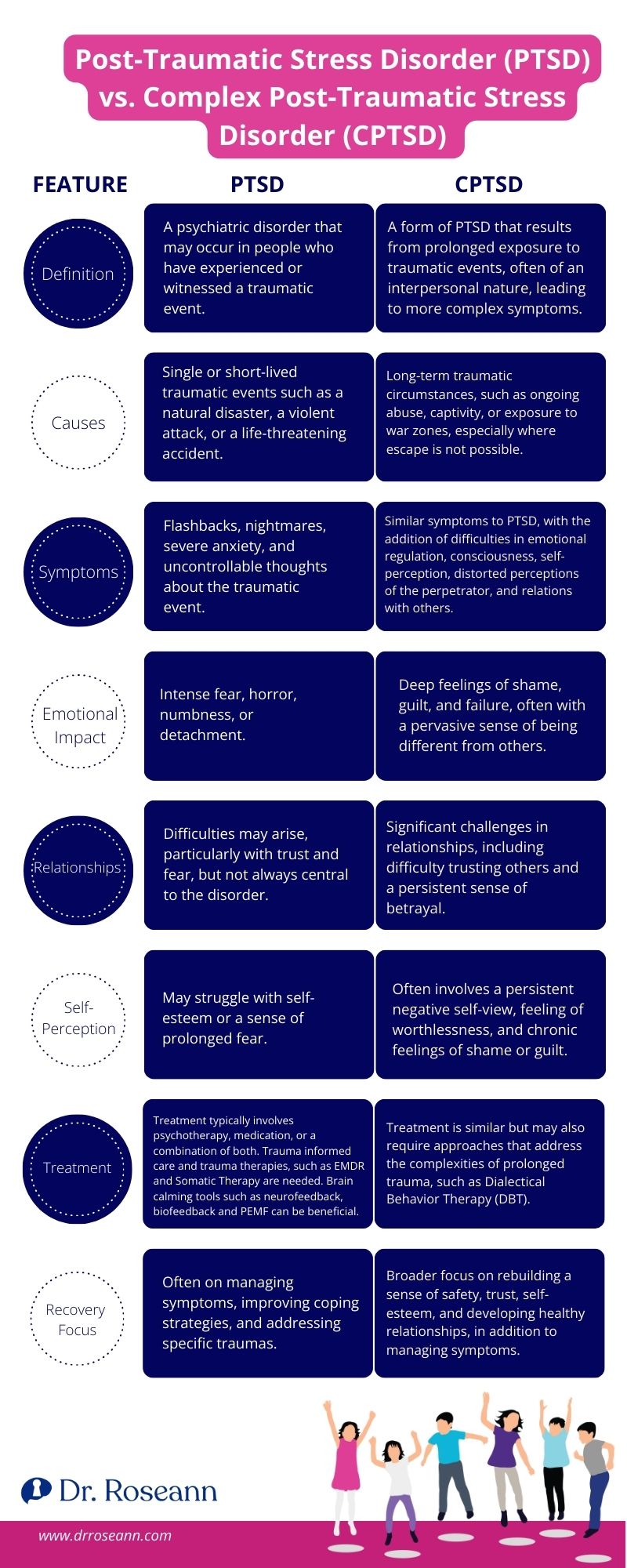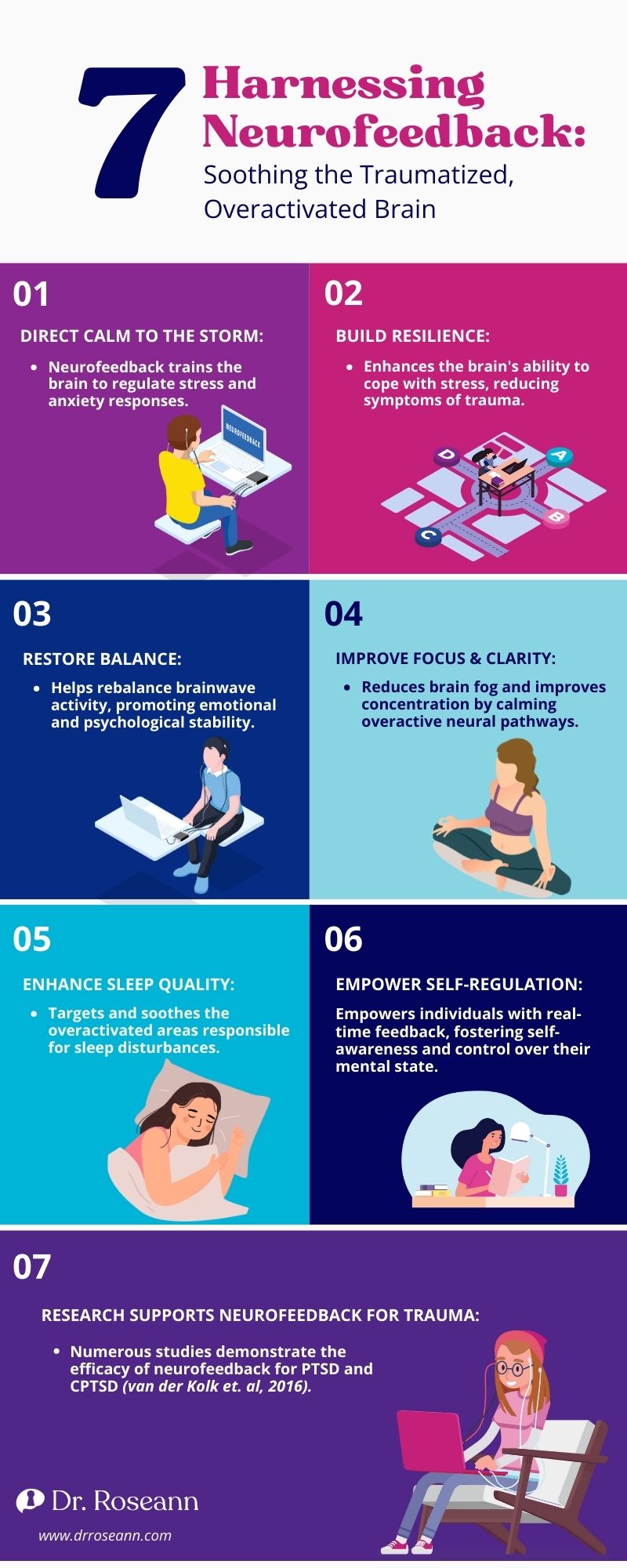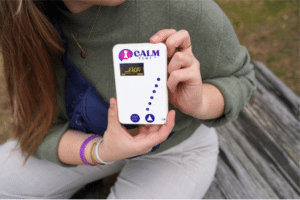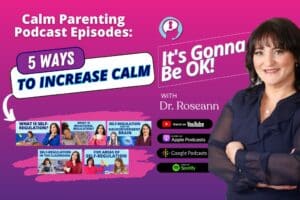For parents of children with mental health conditions, understanding the intersection of neurodivergence and trauma can be crucial in providing the best support and care for their loved ones.
Neurodivergence refers to natural variations in the brain's structure and function that cause differences in thinking, feeling, and behavior. On the other hand, trauma constitutes a range of experiences that can have lasting effects on a person’s mental well-being. When these two aspects intersect, it's essential to recognize the unique challenges and considerations involved, especially when the nervous system is overactivated.
Neurodivergence and Trauma: Defining the Relationship
Neurodivergent people, including those with conditions like autism spectrum disorder (ASD), attention deficit hyperactivity disorder (ADHD), or sensory processing disorder, often have unique ways of perceiving and processing their surroundings. These differences extend to how they experience and respond to traumatic events.
When confronted with trauma, neurodivergent individuals may exhibit heightened sensitivity to sensory stimuli, difficulty regulating emotions, or challenges in effectively communicating their experiences. These responses can exacerbate existing neurodivergent traits, such as sensory overload or social withdrawal, making it more challenging for them to cope with and recover from traumatic experiences.
For example, a neurodivergent child might react to trauma by withdrawing into their world, engaging in repetitive behaviors, or becoming overwhelmed by sensory inputs. These responses could be mistaken for typical neurodivergent behaviors, resulting in a misinterpretation of the underlying distress and potentially delaying appropriate support and intervention.
Furthermore, the manifestation of trauma in a neurodiverse person may not always align with conventional symptoms of post-traumatic stress disorder (PTSD). Instead of displaying classic signs like flashbacks or nightmares, they might express their distress through changes in behavior, mood fluctuations, or somatic complaints. This discrepancy between presentation and expectation can further complicate the identification and treatment of trauma-related issues in a neurodivergent person.

Is PTSD Neurodivergent?
Post-Traumatic Stress Disorder (PTSD) can affect individuals across the neurodiversity spectrum. However, the presentation and response to PTSD may vary depending on your child’s neurodiverse or neurodivergent profile. Some symptoms of PTSD may overlap with neurodivergent traits, such as sensory sensitivities or difficulties with social interaction.
Neurodivergent PTSD refers to the Post-Traumatic Stress Disorder experienced by individuals who are neurodivergent. It includes those experienced by children with conditions such as autism, ADHD, or sensory processing differences.
Neurodivergent individuals may experience PTSD differently due to their unique cognitive and sensory processing profiles, which can influence the manifestation and management of trauma-related symptoms (Kidd, 2018).
Mental health professionals need to understand and accommodate the specific needs of neurodivergent individuals when assessing and treating PTSD to ensure effective support and intervention.
Is C-PTSD Neurodivergent?
Complex PTSD (C-PTSD), which often results from prolonged trauma or repeated exposure to traumatic events, can further complicate the relationship between neurodivergence and trauma. Navigating the complexities of neurodivergence and trauma becomes even more challenging with the addition of this condition.
The chronic stress and dysregulation associated with C-PTSD can impact various domains of functioning, including sensory processing, emotion regulation, and interpersonal relationships, which are already areas of challenge for many neurodivergent individuals. As a result, C-PTSD may amplify existing difficulties and require tailored interventions that address both trauma-related symptoms and neurodivergent traits (Stone et al., 2023).
Autism vs Trauma: Understanding Trauma-Induced Autism
While autism is not caused by trauma, traumatic experiences can sometimes lead to the development of symptoms that resemble autism, particularly in adults. This phenomenon, known as trauma induced autism, highlights the complex interplay between environmental influences and neurodevelopmental factors.
Moreover, there is a higher rate of PTSD amongst individuals with ADHD. This demonstrates just how impactful trauma can be on attention and cognitive functioning.
Parents and caregivers need to differentiate between autism spectrum disorder and trauma-induced symptoms, as accurate diagnosis and appropriate support are crucial for promoting optimal outcomes on Autism PTSD overlap conditions.

Is Trauma Neurodivergent?
One of the most significant challenges faced by neurodivergent individuals, especially those with a history of trauma, is feeling misunderstood and marginalized in unaccommodating environments.
Chronic misunderstandings can exacerbate feelings of isolation, anxiety, and low self-esteem, further compounding the effects of trauma. Creating inclusive and supportive spaces that acknowledge and accommodate neurodivergent needs is essential for fostering a sense of belonging and well-being.
As a parent, navigating the complexities of neurodivergent trauma can feel overwhelming at times. However, by prioritizing empathy, education, and collaboration with healthcare professionals, you can better support your child's unique journey toward healing and self-discovery.
Remember that every individual is deserving of understanding and acceptance, regardless of their neurodivergent profile or trauma history. Together, we can create a more compassionate and inclusive world for all.
Am I neurodivergent or traumatized?
It's possible to experience both neurodivergence and trauma concurrently, as they can interact and influence each other. If you are feeling unheard and chronically misunderstood, it may be helpful to seek professional guidance to explore these experiences further and determine appropriate support strategies tailored to your needs.
Are neurodivergents smarter?
Intelligence is diverse across all individuals, regardless of neurodivergence. While neurodivergent individuals may possess unique cognitive strengths, such as heightened pattern recognition or intense focus, it's inaccurate to generalize intelligence solely based on neurodiversity symptoms or being misunderstood.
Is autism caused by trauma?
Autism is primarily understood as a neurodevelopmental condition influenced by genetic and environmental factors. While trauma can impact individuals with neurodivergent autism, contributing to challenges in coping and social interaction, it is not considered a direct cause of autism itself.
Can trauma cause autism in adults?
Trauma can exacerbate existing neurodivergent traits or lead to symptoms resembling autism, particularly in individuals with undiagnosed autism. However, trauma alone is not sufficient to cause autism in adults, as autism is a complex neurodevelopmental condition with multifactorial origins.
Can PTSD look like autism in adults?
PTSD and autism can share certain behavioral similarities, such as social withdrawal or sensory sensitivities. However, they arise from distinct underlying mechanisms, and misattributing PTSD symptoms to autism or vice versa can hinder accurate diagnosis and appropriate treatment for neurodivergent individuals.
Does childhood trauma cause autism?
While childhood trauma can impact neurodevelopment and exacerbate certain behavioral traits, it is not considered a direct cause of autism. Autism is characterized by differences in brain structure and function that typically emerge early in development and have a strong genetic component.
What's a neurodivergent brain?
A neurodiverse brain refers to variations in brain structure and function that result in atypical thinking, feeling, or behavior. ADHD, autism, dyslexia, and other conditions that diverge from the neurotypical population are what make you neurodivergent.
What is a neurodivergent individual?
Neurotypical and neurodivergent are terms used to describe different ways in which a person’s brain processes information and interacts with the world. Neurodivergent individuals may experience differences in cognitive processing, sensory perception, social interaction, and emotional regulation compared to neurotypical individuals, which is the opposite of neurodivergent.
What falls under neurodivergent traits?
Experts define neurodivergence traits as a spectrum of characteristics and behaviors that deviate from what is considered typical or average in neurotypical individuals. Examples of neurodivergence traits include heightened sensory sensitivity, challenges in social interaction, unique cognitive strengths, and difficulties with executive function.
Is anxiety considered neurodivergent?
Anxiety is not inherently neurodivergent; it can affect individuals across the neurodiversity spectrum. However, persistent anxiety may accompany certain neurodivergent conditions and is considered a symptom rather than a defining characteristic of neurodivergence.
What are neurodivergent disorders?
Neurodivergent disorders encompass a range of conditions that involve atypical neurological development or functioning. Being neurodivergent means you have conditions such as ADHD, autism, dyslexia, and Tourette syndrome. Neurodivergent brains differ from neurotypical functioning but are not necessarily disorders in a negative sense.
What are neurodivergent traits?
Neurodivergent traits refer to characteristics associated with atypical neurological development or functioning. These traits can include heightened sensory sensitivity, intense focus, divergent thinking, and difficulties with social communication or executive functioning.
Is depression considered neurodivergent?
Depression can occur in both neurodivergent and neurotypical individuals and is not inherently neurodivergent. However, certain neurodivergent conditions, such as autism or ADHD, may increase the risk of experiencing depression due to factors like social challenges or difficulty regulating emotions.
Can autism be caused by head trauma?
While head trauma can result in neurological changes and behavioral alterations, autism is not typically caused by such injuries. Autism is primarily understood as a neurodevelopmental condition with genetic and environmental influences, distinct from the effects of head trauma on brain function.
Can you be neurodivergent and not autistic?
Yes, being neurodivergent does not necessarily mean being autistic. While autism is a form of neurodivergence, having neurodivergent and autism traits is not a given. Each neurodivergent condition presents its own set of characteristics, challenges, and strengths, highlighting the diversity within the neurodivergent community.
Are personality disorders neurodivergent?
People with personality disorders, though they may have neurodivergent minds, are not typically considered neurodivergent. Such forms of neurodivergence are not in the same sense as conditions like autism or ADHD. Personality disorders are categorized separately in diagnostic classification systems like the DSM-5.
Can PTSD look like autism?
PTSD or trauma and autism can share certain behavioral similarities, they arise from distinct underlying mechanisms. PTSD is typically a response to a traumatic event, while autism is a neurodevelopmental condition characterized by differences in social interaction, communication, and behavior.
Citations
Kidd, D. E. (2018). Neurodivergence Enminded/Embodied: Living with Severe Traumatic Brain Injury. Word and Text, a Journal of Literary Studies and Linguistics, VIII(01), 48–60. https://www.ceeol.com/search/article-detail?id=722771
Stone, J., Grant, R. J., & Mellenthin, C. (2023). Trauma Impacts: The Repercussions of Individual and Collective Trauma. Wiley.
Dr. Roseann is a mental health expert in Neurodivergence who frequently is in the media:
- Very Well Mind Women With PTSD and Depression Face Increased Early Mortality Risk
- WTNH News 8, Good Morning CT (Video) Chemical PFAS' effect on Children’s Mental Health
- Insider Justin Bieber and his addiction to weed, lean, and pills
Always remember… “Calm Brain, Happy Family™”
Disclaimer: This article is not intended to give health advice and it is recommended to consult with a physician before beginning any new wellness regime. *The effectiveness of diagnosis and treatment vary by patient and condition. Dr. Roseann Capanna-Hodge, LLC does not guarantee certain results.
Are you looking for SOLUTIONS for your struggling child or teen?
Dr. Roseann and her team are all about science-backed solutions, so you are in the right place!
Grab your complimentary copy of
147 Therapist-Endorsed Self-Regulation Strategies for Children: A Practical Guide for Parents
Dr. Roseann is a Children’s Mental Health Expert and Licensed Therapist who has been featured in/on hundreds of media outlets including The Mel Robbins Show, CBS, NBC, PIX11 NYC, Today, FORBES, CNN, The New York Times, The Washington Post, Business Insider, Women’s Day, Healthline, CNET, Parade Magazine and PARENTS. FORBES called her, “A thought leader in children’s mental health.”

She coined the terms, “Re-entry panic syndrome” and “eco-anxiety” and is a frequent contributor to media on mental health.
Dr. Roseann Capanna-Hodge has three decades of experience in working with children, teens and their families with attention-deficit hyperactivity disorder (ADHD), autism, concussion, dyslexia and learning disability, anxiety, Obsessive Compulsive Disorder (OCD), depression and mood disorder, Lyme Disease, and PANS/PANDAS using science-backed natural mental health solutions such as supplements, magnesium, nutrition, QEEG Brain maps, neurofeedback, PEMF, psychotherapy and other non-medication approaches.
She is the author of three bestselling books, It’s Gonna Be OK!: Proven Ways to Improve Your Child's Mental Health, The Teletherapy Toolkit, and Brain Under Attack. Dr. Roseann is known for offering a message of hope through science-endorsed methods that promote a calm brain.
Her trademarked BrainBehaviorResetⓇ Program and It’s Gonna be OK!Ⓡ Podcast has been a cornerstone for thousands of parents facing mental health, behavioral or neurodevelopmental challenges.
She is the founder and director of The Global Institute of Children’s Mental Health, Neurotastic™Brain Formulas and Dr. Roseann Capanna-Hodge, LLC. Dr. Roseann is a Board Certified Neurofeedback (BCN) Practitioner, a Board Member of the Northeast Region Biofeedback Society (NRBS), Certified Integrative Mental Health Professional (CIMHP) and an Amen Clinic Certified Brain Health Coach. She is also a member of The International Lyme Disease and Associated Disease Society (ILADS), The American Psychological Association (APA), Anxiety and Depression Association of America (ADAA) National Association of School Psychologists (NASP), International OCD Foundation (IOCDF).
© Roseann-Capanna-Hodge, LLC 2024










